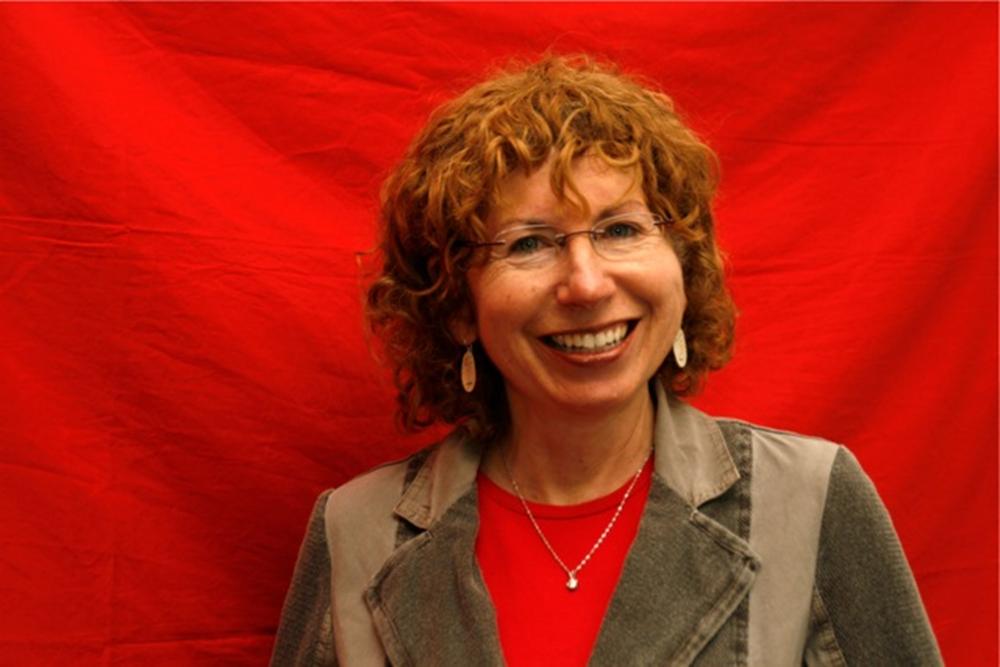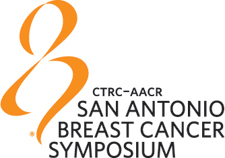By Joyce Bichler, Deputy Director
 This year is the 40th anniversary of the San Antonio Breast Cancer Symposium (SABCS) and symposium leaders are using the occasion to call for celebration. But as I prepared to attend the conference, celebrating was certainly not on the list of things I planned to be doing.
This year is the 40th anniversary of the San Antonio Breast Cancer Symposium (SABCS) and symposium leaders are using the occasion to call for celebration. But as I prepared to attend the conference, celebrating was certainly not on the list of things I planned to be doing.
Breast Cancer Action staff have attended this conference for years, with the purpose of gathering and decoding the latest news on breast cancer research and treatment and sharing that information with our members. The goal is the same this year. And as I wade through the science of the first few days of the conference, I keep thinking about one thing I wasn’t prepared for—the realization that the more we know about the complexities and the differences in breast cancer screening, diagnosis, and treatment the more we don’t know. When are we going to get to a point where we have more answers than questions and have meaningful break throughs that make a real difference for women living with and dying from breast cancer?
As we’ve come to understand receptor statuses, almost infinite genomic variabilities, and characteristics of different types of breast cancer, it’s gotten to the point, as one presenter said, that each person’s breast cancer is almost its own unique entity. And because of this, we have a lot more treatment options and choices to make. So why then does it still feel that we’re deep in the mud and that actually addressing and ending the breast cancer epidemic is further out of reach than anyone is letting on?
 Having myself been around the “cancer world” for a whole lot of decades, I‘ve also been struck by how far (in some ways) our understanding of breast cancer has come. During the Opening and Welcome Remarks at SABCS, attendees were shown a 40 year retrospective video that encouraged us to think back to the 1970’s, when all breast cancer was pretty much treated the same – you were diagnosed, you had a radical mastectomy, maybe primitive chemotherapy, and then you hoped you didn’t die.
Having myself been around the “cancer world” for a whole lot of decades, I‘ve also been struck by how far (in some ways) our understanding of breast cancer has come. During the Opening and Welcome Remarks at SABCS, attendees were shown a 40 year retrospective video that encouraged us to think back to the 1970’s, when all breast cancer was pretty much treated the same – you were diagnosed, you had a radical mastectomy, maybe primitive chemotherapy, and then you hoped you didn’t die.
According to Dr. C. Kent Osborne of the Baylor College of Medicine who spoke during the Welcome and Opening Remarks, all breast cancers used to be treated exactly the same because we thought so differently about breast cancer itself. Over the years the scientific advances have totally changed our understanding of the differences and complexities of breast cancer—and for many women this has led to a de-escalation of treatment. For some women, this means they get only what they need for their breast cancer, and for others it has meant an increase in the amount and array of treatment they receive for their disease. How we treat breast cancer today is almost unrecognizable from how it was treated 40 years ago.
It’s good to see where we’ve been, and that we’re no longer living with the standard of care being radical mastectomies, but the truth is women are still dying of breast cancer. We still need to be doing more, we need to be doing it faster and we need to be doing it better.
We still have to figure out the resistance pathways of breast cancer cells. Treatment resistance remains a real issue—when pathways are blocked by one therapy we know primary pathways can get reactivated or alternative pathways take over. Research is focusing now on how we block all the pathways and how to keep them blocked. I’m looking forward to where we are a year from now on this work.
And while we can acknowledge the progress made in the approaches being used to prevent or delay metastatic breast cancer, we still don’t have the tools we need to know how to truly manage it once it occurs—more needs to be done to figure out how to decrease the number of women dying from metastatic breast cancer each and every year. And how to prevent the disease from even starting.
It’s true. How we think about and treat breast cancer today is unrecognizable from 40 years ago. But it’s also true that every year at SABCS the attendees include advocates who know that this may very well be their last conference. As we meet people who stop by Breast Cancer Action’s booth in the exhibit hall, we talk about people who are no longer alive. There is hope for a better future and anger that we’re still not there yet.
Wednesday, I spoke to an advocate who told me she has Triple Negative Breast Cancer and probably won’t live to be here next year. As I think of her, I can’t help but feel “celebrating” our wins and progress is premature.